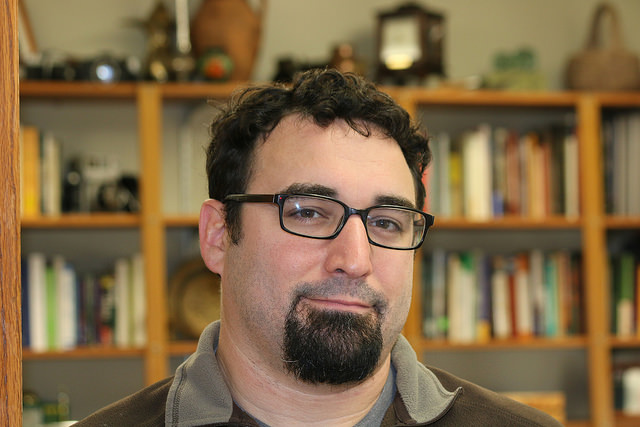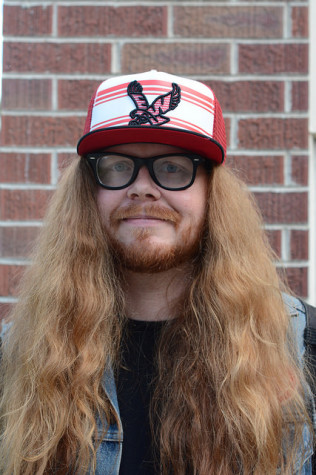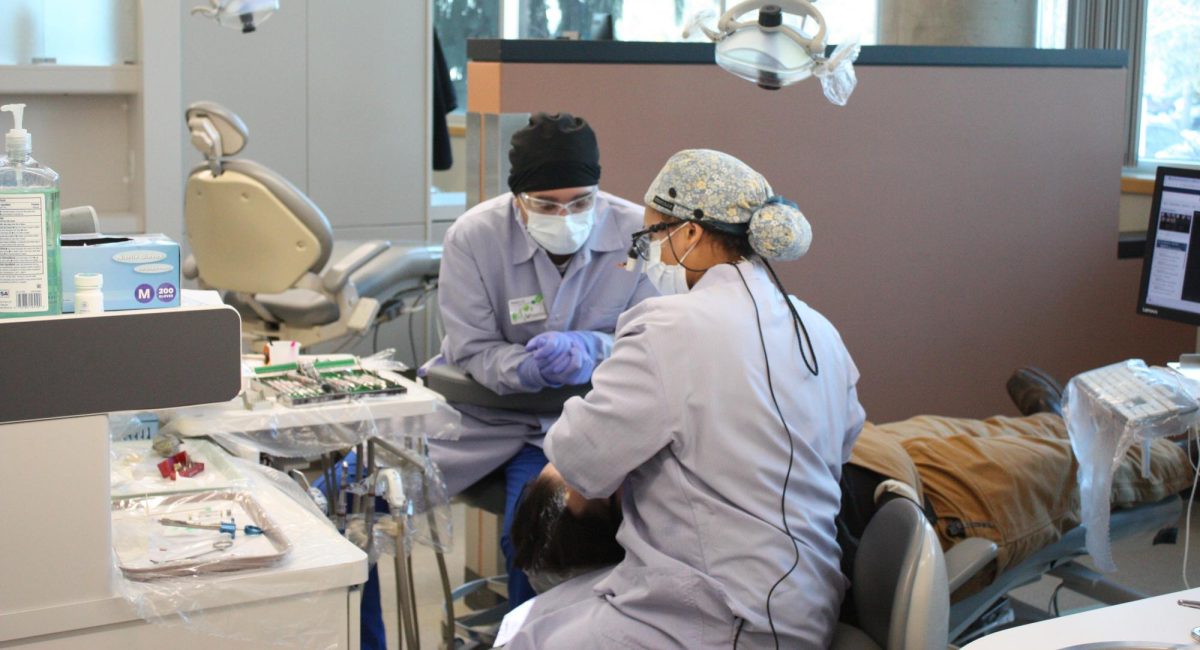New chair for EWU Department of Geography and Anthropology digs up old inventory
Robert Sauders is the new chair of EWU’s Department of Geography and Anthropology.
October 21, 2014
When new chair of EWU’s Department of Geography and Anthropology Robert Sauders, Ph.D., traded offices with outgoing chair Stacy Warren, Ph.D., this summer, they found some strange stuff.
“I feel like I’m telling on someone,” LeAnn Knoles, secretary of Geography and Anthropology said.
Although Warren occupied the chairperson’s office for the last nine years, according to Knoles, the room itself had not had a serious cleaning in over 30 years since Geography and Anthropology joined as one department in 1979.
Obsolete policies and procedures dating back decades, a hand-made wood bound book on sweat lodges etched with “1982” and evidence of Isle Hall’s infamous squirrel population in the form of miniature petrified meadow-muffins were all found in the process of trading spaces.
After elections for the position were held in May, Sauders said he and Warren negotiated the handoff of the office, which he officially took over Sept. 1.
The term for department chair is four years, with a limit of two terms. Warren, a geography professor in the department, said she served two consecutive terms and an additional year due to the unavailability of a qualified new chairperson to take over.
“We don’t want to take a new assistant professor and pile all of that work on top of them, so for humane reasons, we require them to have tenure, or at least strongly suggest,” Warren said. “And the other qualification is they can’t be too busy doing other things. Or be willing to do it.”
According to Sauders, the way that it works in the dual department is this: Whatever department holds the chair, either geography or anthropology, that program deals with undergraduate advising of its own and the other will have what is called a “program director” to deal with the administrative issues specific to that program.
Like Warren, Sauders now not only serves as department chair, but also as director of the anthropology program.
“[Sauders] is an excellent teacher, and so far, he has been a brilliant administrator,” said Sarah Keller, Ph.D., who, according to Sauders, has been teaching at Eastern “since Lucy, [early human ancestor,] was an anthropology student.”
Keller said she has either been program director of anthropology or chairperson since the two departments joined in 1979. Keller actually founded EWU’s Anthropology department in 1966, as a part of Sociology, Anthropology and Social work. She served two terms as chair from 1997 to 2005, just before Warren’s terms began. This will be the first time since 1966 that Keller has not been the person to sign off on her students’ graduation forms.
Jeff Johnson, an Eastern graduate student, said he thinks Sauders is ready for the task of making the department noticed university wide and hopes in time the department will be recognized regionally as well.
“The guy practically got me into grad school and is working with others to do the same,” Johnson said.
As much as learning should be for students, Warren said in her nine years as chair, she learned a lot about the tedious job of an administrator and she knows Sauders will too.
“I got to see a lot of change in the university over those nine years,” Warren said.
Paperwork, which had once gone through various financial offices and records and registration, has been decentralized to the departments; she also saw the shift from “paper” paperwork to its online version.
Though a lot of the learning process goes a long way to help the department run more smoothly, Warren said it bears little resemblance to what a professor would hope for; research and teaching is often traded for new software systems and balancing budgets, and she said she wishes Sauders good luck for what the future may hold.
Sauders is now settled into the new office, his Ph.D. robes hang on the freshly-painted wall next to the shelf with the old wooden chairman’s gavel, and the windows are closed to keep the squirrels out.
Warren said she does not know of any other department where the chair’s office has been left untouched for that long.
“For anthropologists, it was beautiful,” Warren said. “It’s almost like archaeology. We’re finding things from like [the 1970s] that fell back behind filing cabinets. We joked that they should call the archivist to come over and help catalogue what we have. Just, like, old—stuff.”









